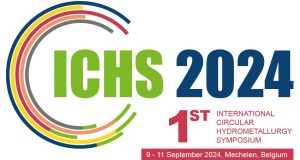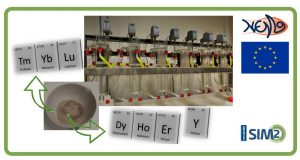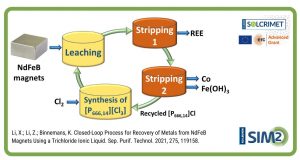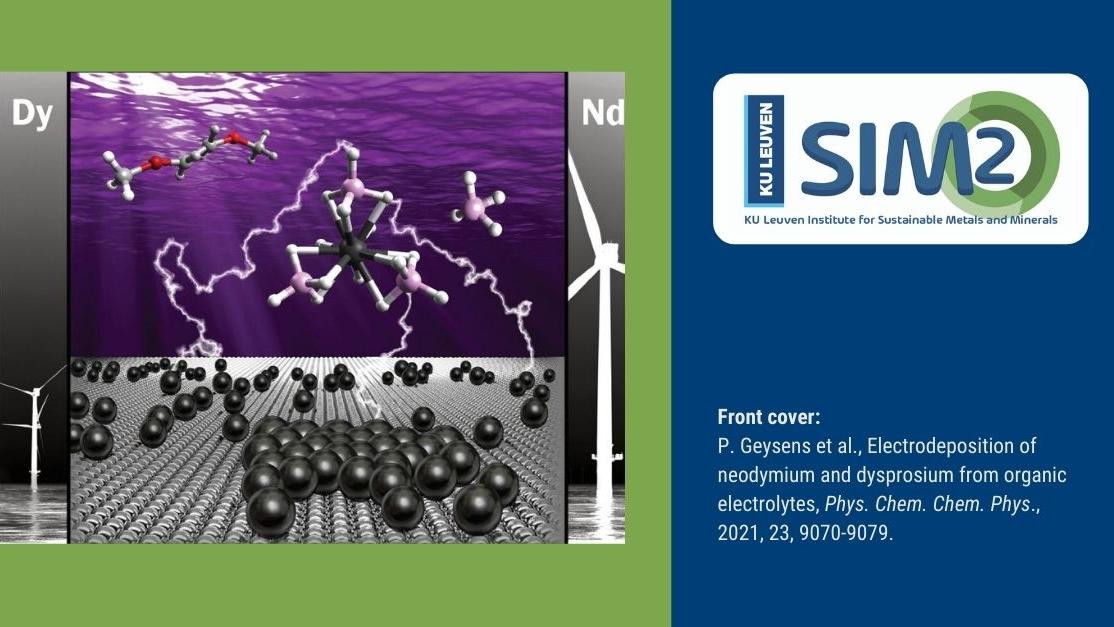Steff Van Loy, Koen Binnemans & Tom Van Gerven (SIM² KU Leuven) achieved a milestone with respect to lamp phosphor recycling. Using ball milling they significantly enhanced the rare-earth leaching rates in the lamp phosphors. The work has been published in the Journal of Cleaner Production. The title of the paper is “Recycling of rare earths from lamp phosphor waste: enhanced dissolution of LaPO4:Ce3+,Tb3+ by mechanical activation” .
Highlights
- Improved leaching yield of 80% for Tb, from LAP is achieved at room temperature.
- The mechanical activation mechanism of LAP phosphor is investigated.
- The effect of mechanical activation parameters on the leaching yield is studied.
- A full recycling process for lamp phosphor waste is proposed.
Shortened abstract
A pretreatment of green lamp phosphors by ball milling increases the leaching of La, Ce and Tb from below 1% to above 80%! This remarkable increase opens opportunities for an easy recycling of the green LAP, which until now required extreme conditions for dissolution such as high acid concentrations and high temperature. After ball milling, mild leaching conditions using 4N nitric acid at room temperature are sufficient. An optimized procedure was also applied to lamp phosphor waste, containing a mixture of different phosphors. After removal of the halophosphate and red YOX phosphors, 99%, 87% and 86% of La, Ce and Tb could be dissolved, respectively.
Link to paper
More information can be found here.


 European Training Network for the Design and Recycling of Rare-Earth Permanent Magnet Motors and Generators in Hybrid and Full Electric Vehicles (DEMETER)
European Training Network for the Design and Recycling of Rare-Earth Permanent Magnet Motors and Generators in Hybrid and Full Electric Vehicles (DEMETER)



